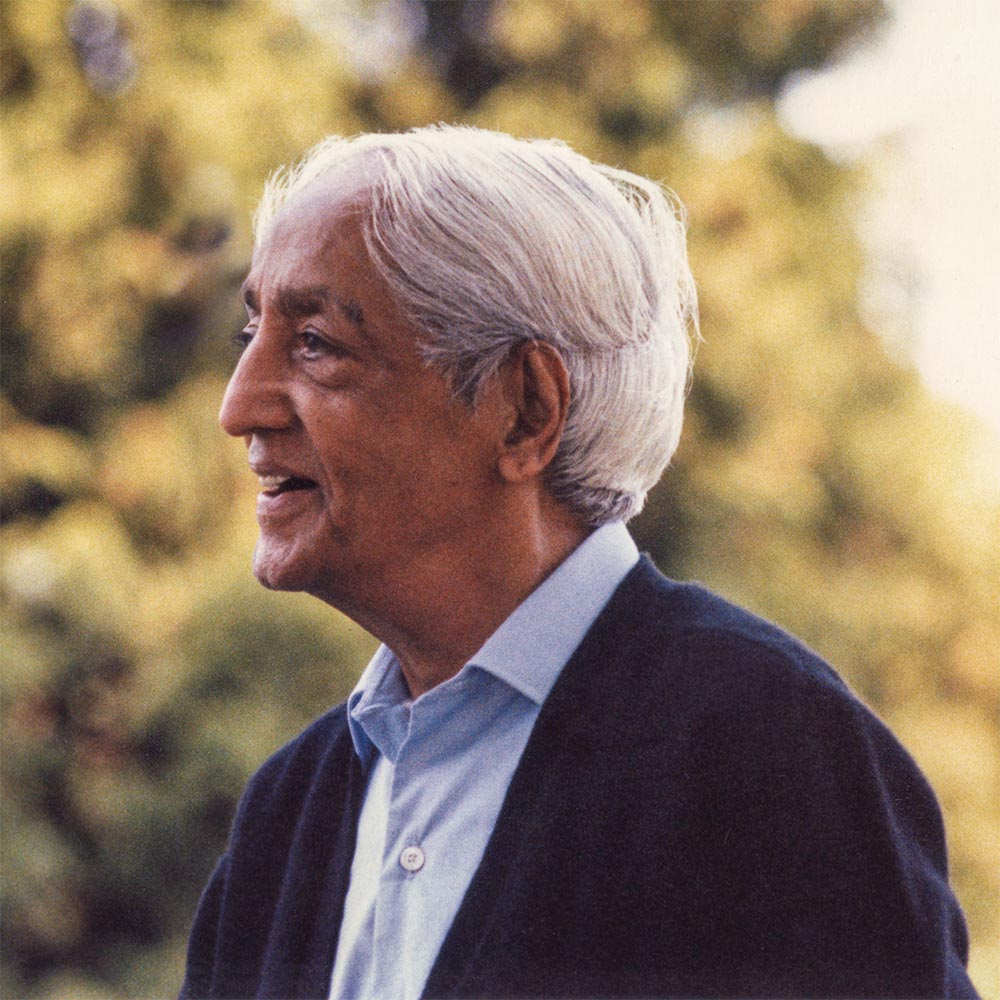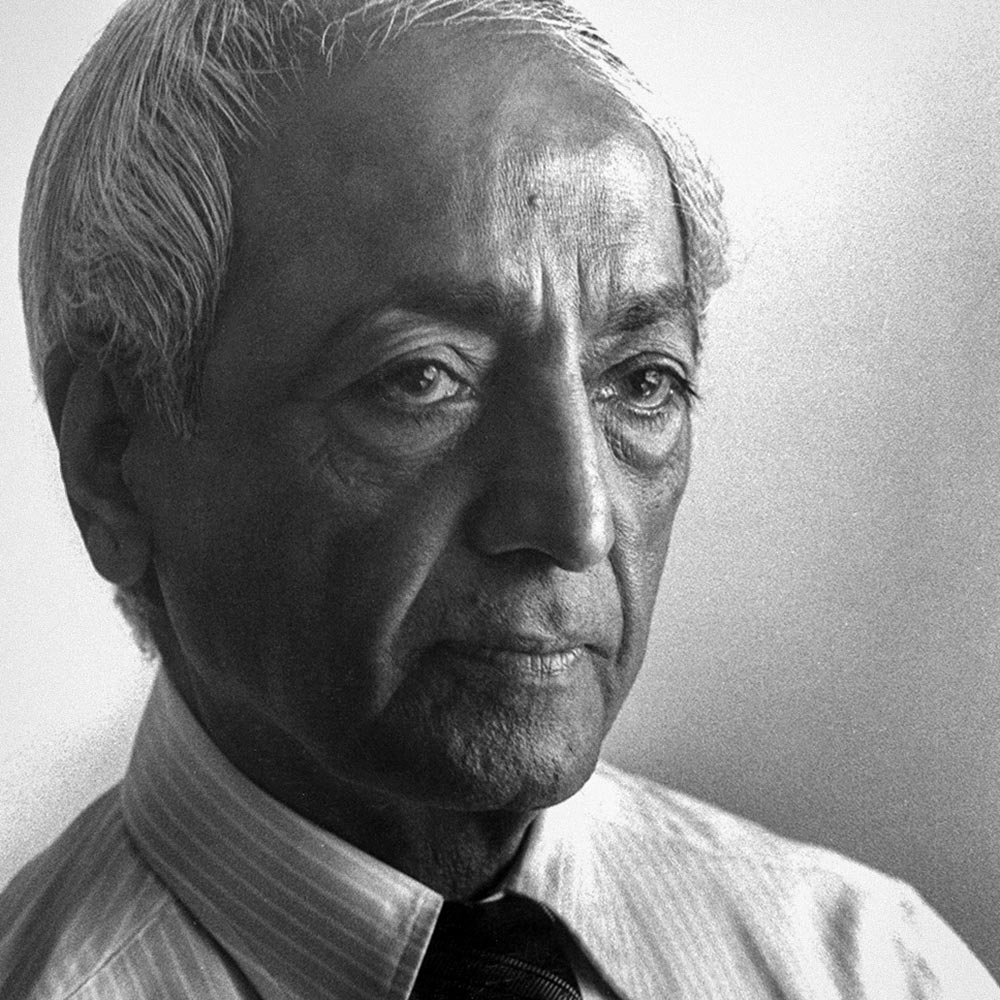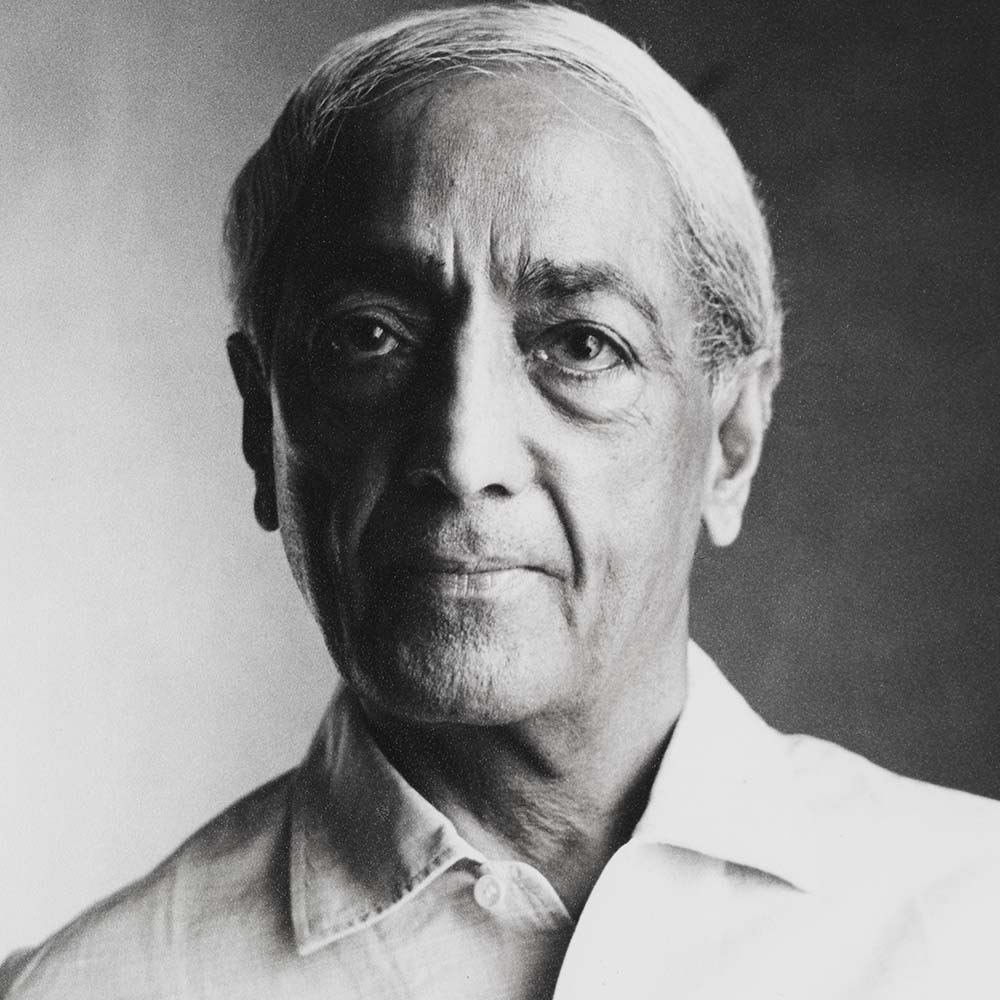Society is not different from you – you are society. The very structure of society is the structure of yourself.
Krishnamurti, How to Find Peace
Read More
The understanding of oneself does not come through the process of withdrawal from society or through retiring to an ivory tower.
Krishnamurti, How to Find Peace
Read More
Society is the product of our relationships – if our relationships are confused, egocentric, narrow, limited, national, we project that and bring chaos into the world.
Krishnamurti, What Are You Doing With Your Life?
Read More
A system cannot transform man; man always transforms the system, as history shows.
Krishnamurti, The First and Last Freedom
Read More
If society exists for the individual, the function of society is not to make us conform to a pattern but to give us the feel, the urge, of freedom.
Krishnamurti, The First and Last Freedom
Read More
As society is always in a state of corruption, destroying itself from within, a mind that continues to be influenced by society must also be in a state of corruption or deterioration.
Krishnamurti, Commentaries on Living 3
Read More
Society is based on ambition, envy and acquisitiveness, in which each is the enemy of another. You are educated to conform to this disintegrating society, to fit into its vicious frame.
Krishnamurti, What Are You Doing With Your Life?
Read More
Parents and society are shaping the minds of children through tradition, belief, dogma, conclusion and opinion. This psychological inheritance prevents the coming into being of a new social order.
Krishnamurti, Commentaries on Living 3
Read More
You may be very learned and do the things society calls good, but they are all within the prison walls of tradition and therefore of no revolutionary value at all.
Krishnamurti, Think on These Things
Read More
How to bring about a radical transformation in society is our problem. This transformation of the outer cannot take place without inner revolution.
Krishnamurti, The First and Last Freedom
Read More
Is it possible to create a society in which corruption and misery doesn’t exist? It can be created only when you and I break away from the collective, when we are free of ambition and know what it means to love.
Krishnamurti, Think on These Things
Read More
Absolute care is love. Without this love, there can be no change in society.
Krishnamurti, The Whole Movement of Life Is Learning
Read More
We need to bring about a good society in which all human beings can live happily in peace, without violence, with security. You are responsible for this.
Krishnamurti, The Whole Movement of Life Is Learning
Read More
The morality of society is the continuance of disorder.
Krishnamurti, Meeting Life
Read More
Walk in solitude, though you live in society.
Krishnamurti, Meeting Life
Read More
These quotes only touch on the many subjects Krishnamurti inquired into during his lifetime. His timeless and universal teachings can be explored using the Index of Topics where you will find texts, audio and video related on many themes. Another option is to browse our selection of curated articles or more short quotes. Krishnamurti’s reply when asked what lies at the heart of his teachings can be found here. Many Krishnamurti books are available, a selection of which can be explored here. To find out more about Krishnamurti’s life, please see our introduction and the biography. We also host a weekly podcast, and offer free downloads. Please visit our YouTube channel for hundreds of specially selected shorter clips. Below, you can learn more about Krishnamurti and our charity which he founded in 1968.

Who Was Krishnamurti?
J. Krishnamurti (1895-1986) is widely regarded as one of the greatest thinkers and religious teachers of all time. He spoke throughout the world to large audiences and to individuals, including writers, scientists, philosophers and educators, about the need for a radical change in mankind. Referring to himself, Krishnamurti said:
He is acting as a mirror for you to look into. That mirror is not an authority. It has no authority, it’s just a mirror. And when you see it clearly, understand what you see in that mirror, then throw it away, break it up.
Krishnamurti was concerned with all humanity and held no nationality or belief and belonged to no particular group or culture. In the latter part of his life, along with continuing to give public talks, he travelled mainly between the schools he had founded in India, Britain and the United States, which educate for the total understanding of man and the art of living. He stressed that only this profound understanding can create a new generation that will live in peace.
Krishnamurti reminded his listeners again and again that we are all human beings first and not Hindus, Muslims or Christians, that we are like the rest of humanity and are not different from one another. He asked that we tread lightly on this earth without destroying ourselves or the environment. He communicated to his listeners a deep sense of respect for nature. His teachings transcend man-made belief systems, nationalistic sentiment and sectarianism. At the same time, they give new meaning and direction to mankind’s search for truth. His teaching is timeless, universal and increasingly relevant to the modern age.
I am nobody. It is as simple as that. I am nobody. But what is important is who you are, what you are.
Krishnamurti
Krishnamurti spoke not as a guru but as a friend. His talks and discussions are based not on tradition-based knowledge but on his own insights into the human mind and his vision of the sacred, so he always communicated a sense of freshness and directness, although the essence of his message remained unchanged over the years. When Krishnamurti addressed large audiences, people felt that he was talking to each of them personally, addressing their own particular problem. In his private interviews, he was a compassionate teacher, listening attentively to those who came to him in sorrow, and encouraging them to heal themselves through their own understanding. Religious scholars found that his words threw new light on traditional concepts. Krishnamurti took on the challenge of modern scientists and psychologists and went with them step by step, discussing their theories and sometimes enabling them to discern the limitations of their theories.
Krishnamurti left a large body of literature in the form of public talks, writings, discussions with teachers and students, scientists, psychologists and religious figures, conversations with individuals, television and radio interviews, and letters. Many of these have been published as books, in over 60 languages, along with hundreds of audio and video recordings.

The Krishnamurti Foundation
Established in 1968 as a registered charity, and located at The Krishnamurti Centre, Krishnamurti Foundation Trust exists to preserve and make available Krishnamurti’s teachings.
The Foundation serves a global audience by providing worldwide free access to Krishnamurti videos, audio and texts to those who may be interested in pursuing an understanding of Krishnamurti’s work in their own lives.
In describing his intentions for the Foundations, Krishnamurti said:
The Foundations will see to it that these teachings are kept whole, are not distorted, are not made corrupt.

